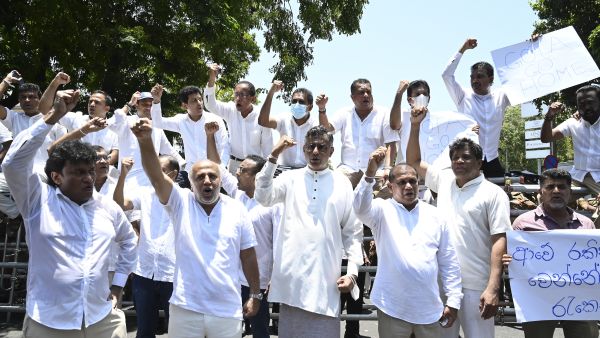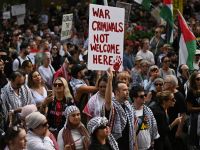Sri Lankan cities have witnessed sweeping protests in recent days, in the wake of the severe economic crisis that has been hitting the country for several months. However, the government has responded by announcing an emergency state and blocking social media applications nationwide.
Protests started last Thursday following growing anger amidst people in the country suffering from unprecedented inflation and shortage of essential needs, including fuel and others.

ISHARA S. KODIKARA/AFP
The economic crisis in Sri Lanka has taken its toll on millions of people, as power shortages for extended hours have forced hospitals to stop surgery operations for several hours last week.
This also followed a 20% rise in fuel prices last week which has aggravated the economic situation in the country.
⚠️ Confirmed: Real-time network data show Sri Lanka has imposed a nationwide social media blackout, restricting access to platforms including Twitter, Facebook, WhatsApp, YouTube, and Instagram as emergency is declared amid widespread protests.
— NetBlocks (@netblocks) April 2, 2022
? Report: https://t.co/XGvXEFIqom pic.twitter.com/KEpzYfGKjV
After curfew, Sri Lanka has shut down all social media platforms in the country! If you elect a dictator, you don’t deserve a democracy.
— Ashok Swain (@ashoswai) April 2, 2022
In response, thousands of people have taken to the streets in demand of political change, while attacking President Gotabaya Rajapaksa, who comes from a prominent family from which several presidents were elected over the years.
Rajapaksa's residency in Colombo was stormed by hundreds of protesters last Thursday, resulting in over 50 injuries and a government announcement of a state of emergency and banning social media networks often used to organize protests and share media of its scale. The government also announced a 36-hour curfew until Monday, in an attempt to curb demonstrations.
For several hours now, Sri Lankans have been unable to access Twitter, Facebook, WhatsApp, YouTube, or Instagram, raising international concerns over the developments in the country.







